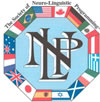What is NLP


Short for Neuro Linguistic Programming, NLP is the study of subjective experience and what can be generated from that.
It’s about how the brain works and language (both verbal and non-verbal), and the chemistry within the brain. It also calibrates the effect of states on learning new skills and behaviours.
It was developed by Richard Bandler and John Grinder in the 1970s in the University of California, Santa Cruz USA. They modelled the techniques of effective therapists and communicators such as Fritz Perls (the founder of Gestalt Therapy), Virginia Satir (the founder of Family Therapy), and Milton Erickson (recognised by many as the father of 20th Century hypnotherapy). The purpose of this was to distil how they got such great results. Quickly Richard and John realised that experience had a structure, and this in turn could be taught to others.
Co-developer, Richard Bandler describes NLP as
"An ATTITUDE
…characterised by the sense of curiosity and adventure and a desire to learn skills to be able to find out what kinds of communication influences somebody and the kinds of things worth knowing; to look at life as a rare and unprecedented opportunity to learn
A METHODOLOGY
…based on the overall operational presupposition that all behaviour has a structure… and that structure can be modelled, learned, taught and changed (re-programmed). The way to know what will be useful and effective are the perceptual skills.
…evolving as an innovative TECHNOLOGY
…which will enable the practitioner to organise information and perceptions in ways that allow them to achieve results that were once inconceivable."
There are four main pillars to NLP
- Rapport - having rapport with another human being makes the whole process of change an easy one
- Sensory Acuity – how well are your five senses tuned up? By staying on the outside (uptime) a NLP Practitioner should be able to demonstrate great sensory acuity and pick up all the signals that are there and to use and feed these back to the client in a way that is useful.
- Flexibility - To understand that the more flexible someone is, the more resources they have available to them to achieve what they want.
- Outcomes – There is a presupposition of NLP that there is no such thing as failure, only feedback. This means that whatever you do there will be an outcome. If it’s not the outcome desired, there will still be information useful for achieving what is required, and so long as the same actions are not repeated a different outcome will ensue.
NLP is frequently used by many to help with the following:-
- Building confidence
- Improving self esteem
- Removing Phobias
- Relieving Anxiety
- Decreasing Stress
- Controlling and removing Panic Attacks
- Knocking out Compulsions
- Addictions
- Blushing
- Stammering
- Improving learning difficulties
- Developing a better memory
How may NLP help me?
These are just examples of some of the areas I have worked, and there are many more.
As a Trainer and Master Practitioner of NLP I have been very fortunate to have been trained in the UK and USA with co-developer of NLP, Richard Bandler. I am also very pleased to have been trained by, and now support Paul McKenna as one of his assisting team of NLP Trainers.
Please contact me for details about how I can help you in your situation.
If you are interested about learning more about NLP, please click here for details of NLP Practitioner and Master Practitioner Training that I run.
^Top^

